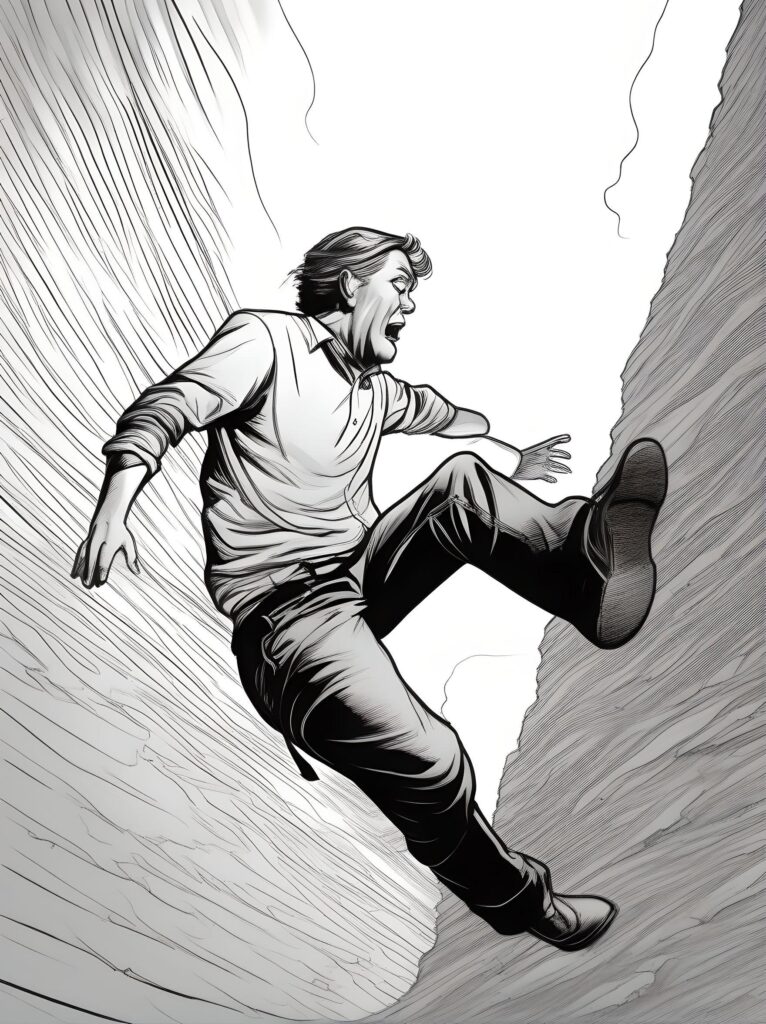Discovering the Unseen Challenge
Hello dear readers of Autistic Weekly! Today, we’re going to talk about something that touches us all – autistic burnout. For those of you who follow me, you know I write about things close to my heart, and this time is no exception. So, join me as we delve into the topic.
Hitting the Wall as an Autist

Five years ago, I found out I am autistic and started talking about my experiences on my blog. As an autistic person with high abilities, I’ve struggled with extreme exhaustion, called autistic burnout. This happened a lot before I knew I was autistic, when I was dealing with work and personal problems. Autistic burnout is very tough and can stop you in your tracks. It happens when there’s too much pressure and too many things expected of you. Stress affects everyone, but it’s really hard for autistic people.
Symptoms Speak Louder Than Words
Individuals experiencing autistic burnout may notice various symptoms, including:
- Mental Fatigue: A sense of overload and tiredness affecting mental capacity.
- Sensory Sensitivity: Heightened reaction to sensory stimuli like noise, light, or touch.
- Communication Difficulties: Increased challenge in communicating and interacting with others.
- Changes in Routines: Difficulty handling changes in routines and surroundings.

For me personally, autistic burnout feels like losing my footing. It’s as if all filters disappear, and I become extra sensitive to noise, light, and demands from the outside world. My focus fades, and suddenly, I can’t handle what I normally do. I lose the ability to navigate daily life in a way understandable to others. Thoughts spin, but I don’t move forward; it just becomes a tangle.
When energy wanes and emotions take over. Autistic burnout isn’t just physical tiredness; it’s also emotional exhaustion. We find ourselves in a situation where our system is overloaded, affecting everything from concentration to social interactions.
Managing Autistic Burnout

Coping with autistic burnout can be tough, but there are good ways to help yourself geting better. Creating a calm and steady space is very important. For me, noticing the early signs of burnout and taking breaks early has really helped. If I pay attention to these signs right away, I can get better quickly and go back to my daily life. Looking back at my own experience in 2015, I went through a serious burnout. Back then, I didn’t realize how bad it was, which made it take longer to get better – almost three months. That time included one month off work for health reasons and two months with less work to do. During that hard time, having regular advice from a psychologist was key in helping me find my way back to myself.
Crafting a Path to recovery from Autistic burnout
Managing and preventing autistic burnout requires an individual strategy. Here are some general tips:
- Clear Communication: Clear communication and clear expectations can reduce stress and confusion.
- Build in Routines: Creating stable routines and planning changes in advance can ease transitions.
- Take Breaks: Planning regular breaks to recover from sensory overload is essential.
For those reading and perhaps struggling with autistic burnout, remember you’re not alone. It’s okay to ask for support and set boundaries. We’re all different, and it’s important to respect our own needs to avoid hitting the wall.
Strength in Community

A call to you all – share your thoughts. One of the most powerful tools we have is our own story. By sharing our experiences, we can open doors to understanding and support, not just for ourselves but for the entire community.
My journey with autistic burnout has been marked by self-awareness and the search for ways to handle the challenges that arise. I’ve learned it’s okay to be vulnerable and ask for help when needed. It’s also important to accept that there are days when it’s hard to handle everything, and that’s perfectly okay.
For those reading and perhaps recognizing my words, let’s together create a space where we can share our progress and setbacks. Comment below and tell about your own strategies for managing autistic burnout. Every small insight and shared experience can be a link in the chain helping someone else navigate their own challenges.
Fostering Support for Autistic Burnout Recovery
Before I conclude, I want to urge you all. Take time to reflect on your own experiences and the strategies you’ve used to overcome challenges. Share your stories and knowledge to create greater awareness of autistic burnout.
Thank you for joining me on this journey through autistic thoughts and feelings. We are strong together! Autistic burnout is a part of our reality, but it doesn’t have to define us. By working together as a community, we can create a world where we feel understood and supported.
So, dear readers, let’s continue this important dialogue. Leave a comment and let’s together create a space where we can share, support, and inspire each other.
Thank you for taking the time to read and be a part of this community. We are strong together, and we will continue to grow and learn from each other on this journey through life with autism.
I was born in 1977. I have a diagnosis of high-functioning autism and understand the world in a different way than others. My Autism blog helps me, who got an autism diagnosis at the age of 41, to try to understand myself and my surroundings from a different perspective. I have been writing on my blog since January 2023



Leave a Reply